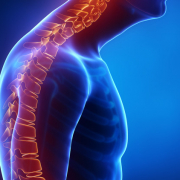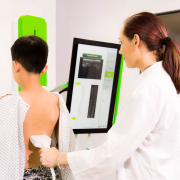SOSORT Conference: Isico in the front row
Once again, ISICO receives the acceptance, in the form of an oral presentation or a poster, of all nine abstracts submitted for the next annual international conference SOSORT that will be held from May 1 to May 4 in Boston, United States.
This is a reconfirmation with full marks for Isico, among the best researchers in the world in the rehabilitation treatment of spinal pathologies.
The following abstracts will be presented, where the first authors Dr. Fabio Zaina, Dr. Greta Jurenaite and Dr. Carlotte Kiekens, physiatrists, Michele Romano, director of physiotherapy, Giulia Fregna, physiotherapist, are from Isico further to Claudio Cordani, a physiotherapist.
– Normative data for radiographic sagittal parameters in asymptomatic population from childhood to adulthood: a systematic search and review (oral presentation)
– Lessons learned on trunk neurophysiology and motor control from adolescent idiopathic scoliosis. A scoping review (poster)
– Influence of specific interventions on bracing compliance in adolescents with idiopathic scoliosis. A systematic review of the literature including sensors’ monitoring (oral presentation)
– Can currently used questionnaires like ODI (and SRS-22) discriminate patients with scoliosis in a population with chronic back pain? (oral presentation)
– Personal and clinical determinants of brace wearing time in adolescents with idiopathic scoliosis (oral presentation)
– Convexity orientation of single scoliotic curves. Are they as we have always been taught? Verification of 4470 single curves (oral presentation)
– Suspected high prevalence and gender difference of scoliotic curves with the apex at T12 (poster)
– PREPARE: Personalized rehabilitation via novel AI patient stratification strategies – the case for idiopathic scoliosis during growth (poster)
– Case series report of atypical lumbar Scheuermann’s disease treated with braces and physiotherapeutic specific exercises (poster)
One of the 9 abstracts presented is linked to the European project PREPARE, in which ISICO takes part.
PREPARE Rehab aims to provide healthcare professionals with valuable insights and tools to predict better and stratify patients, ultimately leading to more personalized and effective rehabilitation interventions. Artificial Intelligence (AI) may help predict treatment outcomes and improve rehabilitation strategies for Idiopathic Scoliosis.
“By combining different factors that influence treatment success, AI-based models can provide a better understanding of the natural progression of the disease and the factors that determine the effectiveness of treatments. This allows us to personalize therapies better and avoid both over-treatment and under-treatment – explains Dr. Carlotte Kiekens, one of the researchers of this project. With its ability to analyze large amounts of data and utilize deep learning techniques, AI offers a comprehensive approach to predicting functional prognosis and setting goals in Individual Rehabilitation Projects (IRPs)”.
In this study, data from over 21 thousand patients were taken into consideration. What do we expect to achieve?
“Three results: a clinical decision support system to be used by clinicians to make shared decisions with their patients and families, integrating big data and thus providing real-time insights; the development of innovative methods and models for categorizing patients into different groups based on specific criteria – ends Dr. Kiekens – and a roadmap that outlines the steps and requirements for ensuring compliance with medical device regulations. These expected results indicate a comprehensive approach to improving healthcare through the integration of advanced technology, data analytics, and regulatory compliance measures”.











Leave a Reply
Want to join the discussion?Feel free to contribute!